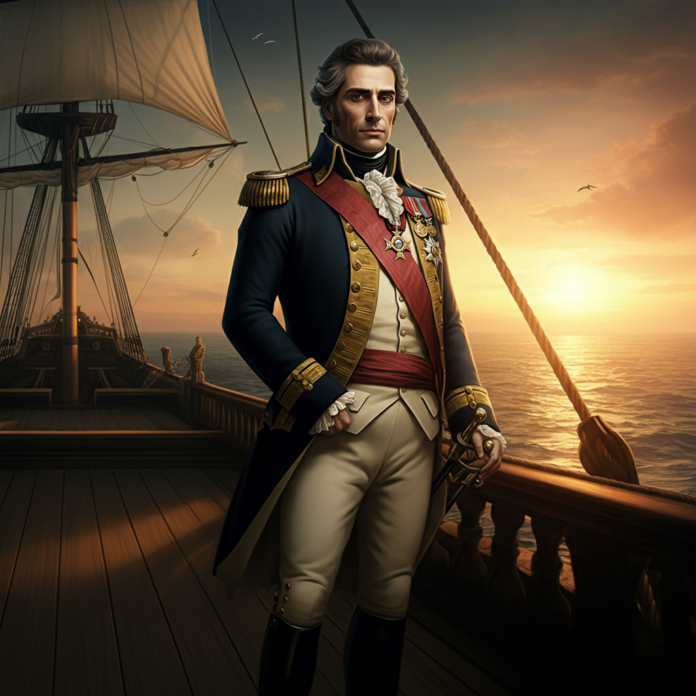Who Was Captain Federico Capelli?
Captain Federico Capelli is a name that may not echo as loudly as some of history’s more celebrated maritime figures, but make no mistake—his influence on naval operations and maritime innovation cannot be overstated. Known for his dedication, ingenuity, and leadership, Capelli holds a distinct place in naval history.
This piece explores who Captain Federico Capelli was, his role in the navy, and why his name continues to resonate with those passionate about maritime history and naval warfare.
From his early days to his remarkable achievements, we’ll walk you through his career and legacy, shedding light on a figure whose contributions helped shape the foundation for modern naval operations.
Early Life and Naval Career
Every remarkable figure has a story, and Captain Federico Capelli’s began with his upbringing. Born into a seafaring family, Capelli’s formative years were steeped in maritime tradition. His hometown, located near prominent naval ports, exposed him to the hustle and bustle of ships, sailors, and the art of navigation from an early age.
After completing his formal education, Capelli was drawn to the navy, enrolling in one of the most prestigious naval academies in his country. It was here that he honed his skills in navigation, strategy, and leadership, laying the groundwork for an illustrious career at sea.
Capelli’s initial appointments reflected his immense potential. Starting as a young officer, he quickly earned a reputation for his meticulous attention to detail and a natural ability to inspire crew members. Over time, these qualities would propel him to positions of greater responsibility.
His career trajectory was nothing short of impressive, moving steadily through the ranks from lieutenant to commander, before ultimately earning the revered title of captain. By the time he reached this position, Capelli had already made a name for himself as a forward-thinking leader with a deep understanding of naval operations.
Notable Achievements
Captain Federico Capelli’s career was filled with significant accomplishments that showcased both his tactical brilliance and his innovative mindset. Perhaps his most notable achievement was overseeing the modernization of maritime navigation systems for his fleet. At a time when technology was rapidly advancing, his efforts ensured that his naval forces could operate with greater precision and efficiency.
Additionally, Capelli commanded several key naval missions that demonstrated his strategic prowess. These missions were often described as textbook examples of effective naval leadership. His ability to adapt to changing circumstances, coupled with his unwavering focus on achieving his objectives, earned him widespread admiration among his peers and subordinates alike.
One of Capelli’s hallmark achievements was his role in coordinating a complex naval operation that required seamless collaboration among multiple fleets. His skillful planning and execution of this operation not only ensured its success but also set a new standard for multi-fleet coordination, an important facet of modern naval warfare.
Significant Contributions
Captain Federico Capelli wasn’t just a skilled naval officer; he was also an innovator who left an indelible mark on the navy in several ways. His contributions extended beyond his tactical success and into areas like training, technology, and morale-building.
One of Capelli’s most significant contributions was his emphasis on education and training within the navy. Recognizing that a well-trained crew was the backbone of any successful operation, he introduced updated training modules that were both rigorous and practical. These modules focused on equipping naval officers and sailors with the skills necessary to thrive in an era where traditional methods were being challenged by new technologies.
Technologically, Capelli was ahead of his time. He championed the integration of new technologies, particularly in navigation and communication, which elevated the operational efficiency of his fleet. Whether introducing innovative radar systems or refining signal protocols, Capelli’s impact on naval modernization was profound.
On a cultural level, he placed immense value on fostering a sense of unity and purpose among his crew. His ability to instill confidence and a shared sense of mission contributed greatly to the success of the units he commanded.
Legacy and Influence
The legacy of Captain Federico Capelli extends far beyond his lifetime. His work laid the groundwork for many advancements in naval warfare and operations that are still relevant today.
Future naval leaders often cited Capelli as a source of inspiration, and his methods continued to influence naval training programs long after his tenure. By blending tradition with innovation, Capelli showcased how naval forces could adapt to an evolving world while maintaining their core values.
Additionally, his initiatives in maritime navigation and technology set the stage for further advancements. The systems and protocols he introduced became benchmarks that other naval forces sought to replicate.
Outside the navy, Capelli’s dedication to excellence and his ability to lead by example made him a celebrated figure in maritime circles. His name remains associated with the ideals of innovation, integrity, and leadership—qualities that resonate not just in naval operations, but in any field where strategy and teamwork are essential.
What Captain Federico Capelli Teaches Us Today
Understanding historical figures like Captain Federico Capelli isn’t just about paying homage to the past—it’s about learning lessons that can be applied today. Capelli’s emphasis on adaptability, education, and team morale speaks to challenges faced by organizations worldwide, not just in naval contexts.
For business leaders, educators, and strategists alike, Capelli’s career offers a blueprint for achieving success in the face of changing landscapes. His life reminds us that leadership is as much about empowering others as it is about achieving personal milestones.
Captain Federico Capelli was more than a naval officer—he was a trailblazer whose efforts continue to ripple through history to the present day. His story serves as a reminder of the profound impact a single individual can have on an entire field.


